Inspired by real-life events, TIM VENABLE’S provocative new play, THE BEAUTIFUL PEOPLE, attempts to give insight into the root of male violence in America. Skillfully directed by GUILLERMO CLENFUEGOS and brilliantly performed by ALEX NEHER and JUSTIN PRESTON, “The Beautiful People” is a powerful, compelling two-hander that will stay with you long after the curtain has come down. We caught up with the writer and director to ask them why this play, and why now.
What was the genesis of the plot for this new play Tim, and how did you decide to approach it?
Tim: I’ve always been a night owl, ever since I was a kid. I had a pretty lonely childhood and hated school, so late nights have always felt like a special and safe place for me. I was living in Denver and only a few years older than these kids when Columbine happened. It was all so terrible and surreal, and it stuck with me in a really personal way. I wondered what the night before was like for these two boys? They had been planning this for a long time, so I became interested in the normal, boring, stupid things that teenagers do when they hang out, especially late at night. It just so happens that in a few hours they’re going to do this terrible thing. It would play out in real-time, including long silences where they’re not talking, and because their plans had been so involved and meticulous and in place, they didn’t need to talk about it. They could just watch MTV, eat junk food, and just be normal teenagers. Until it was time, and then we watch this sickening preparation right in front of us, and we’re powerless to do anything about it.
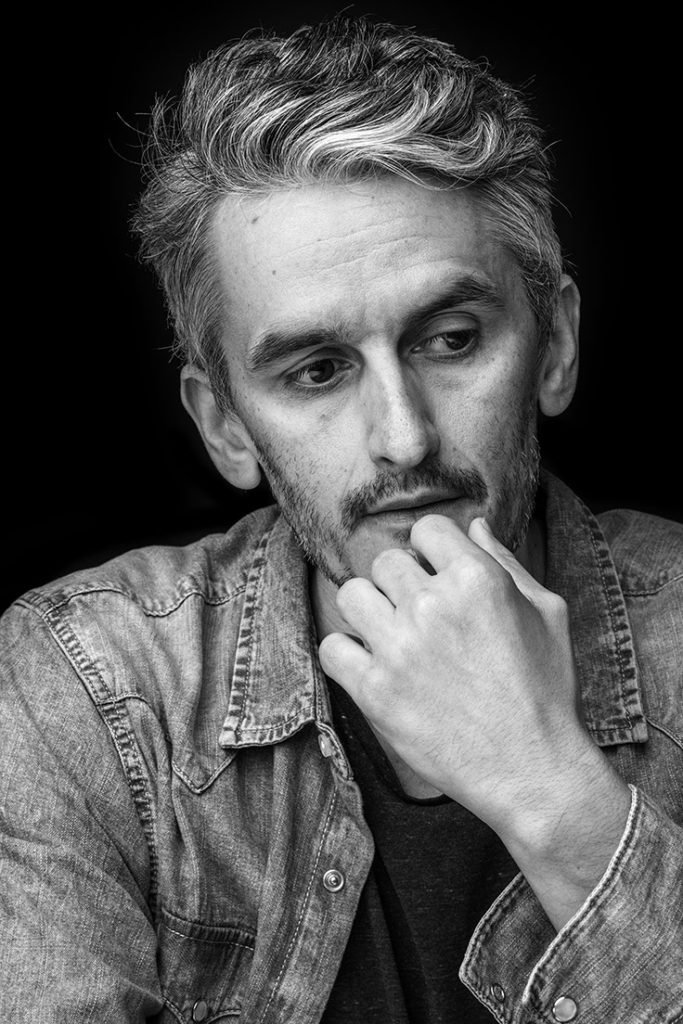
Guillermo, when did you get inspired to tackle the direction for The Beautiful People and why?
Guillermo: As soon as I read the play. It’s rare for me to read a play
that engages me and draws me in like this one. Usually, I end up staying on the
outside looking in – seeing it as a director in practical terms, like how
would I stage that? Why did the playwright do that? Here, I was grabbed right
away – then hit with a sledgehammer at the end. At first, I was excited
about tackling the subject matter and also with the idea of staging the play in
a small tight space. Placing the audience very much in the room with the
two boys. The original plan was to do it in an upstairs room at the theatre,
but that was not logistically possible. However, our Production
Designer David Mauer took that idea and ran with it. By re-thinking the
room and the seating, using only practical non-theatrical lighting and even
installing a ceiling that makes the lighting grid go away, he completely
transformed the Matrix Theatre into the claustrophobic basement in which our
story takes place.
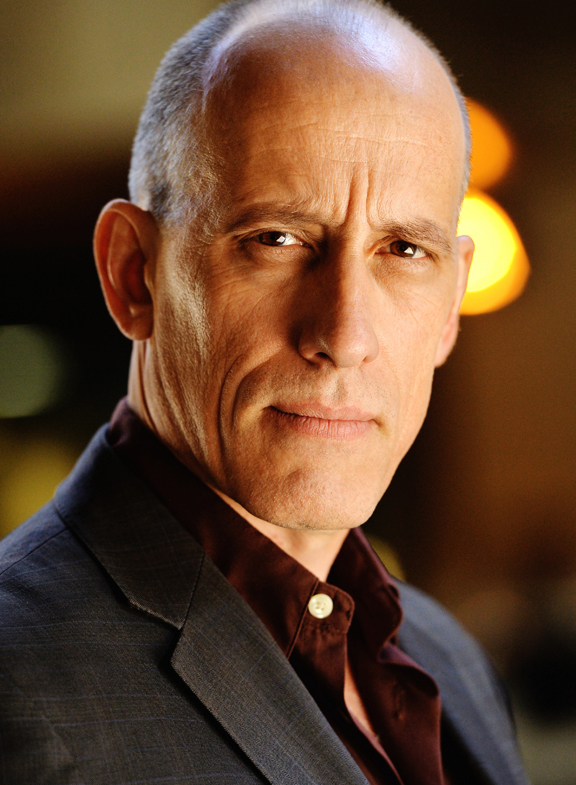
Were you both on the same page regarding the plot twist reveal and with the way that the story should be told?
Tim: Working with Guillermo was a dream come true. I’m amazed and humbled and profoundly grateful to be paired with a director who has such courage and a relentless pursuit of the truth. We’ve been on the same page from the very beginning.
Guillermo: Yes, although I don’t think the success of the play is dependent on it. What’s important to us was that the audience be drawn into these boys’ lives and see them as regular kids. Acting stupid, silly, sometimes in funny ways and sometimes in ugly ways. Seeing their dynamic reveal itself slowly. Recognizing the ways in which these boys are disturbed and driven. But, always seeing them as American male teenagers. Until we learn their plans.
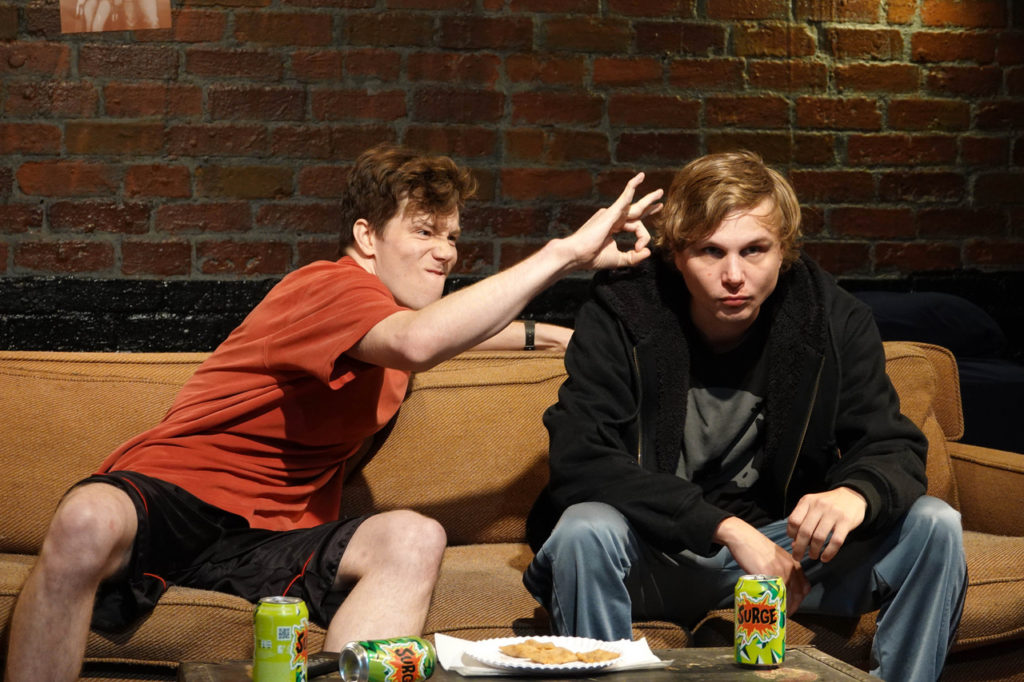
Why do you think that Rogue Machine is the best place to premiere this production?
Tim: I’ve said this before, and will say it forever, John P. Flynn is one of the most courageous theatrical artists and producers I’ve ever met. He takes risks that no one takes. He’s like Joseph Papp in that way, very much a fierce advocate for playwrights, and Rogue Machine’s reputation speaks for itself. This is where John Pollono, another fearless artist and one of my heroes, started with his play Small Engine Repair; and Kemp Powers developed his brilliant play One Night in Miami…, not to mention countless other lesser-known world premiere productions of important plays. John has been a champion of my work over the years, and so when he offered to produce The Beautiful People at Rogue Machine, I was thrilled – to say the least.
Guillermo: Since its inception, Rogue Machine has been dedicated not only to new plays – which in and of itself is a difficult mission to have as a small organization – but plays that challenge the audience to look at our world a bit differently, even at parts of being a human being and living in the world that we perhaps might not want to look at. During the process of preparing this production, I had a lot of fears and doubts. I talked about them to John Flynn and he said that it was possible that this play could be the one that caused the theatre to be shut down. And knowing that, he would still produce it every time. That’s why Rogue Machine is the best place to premiere this production.
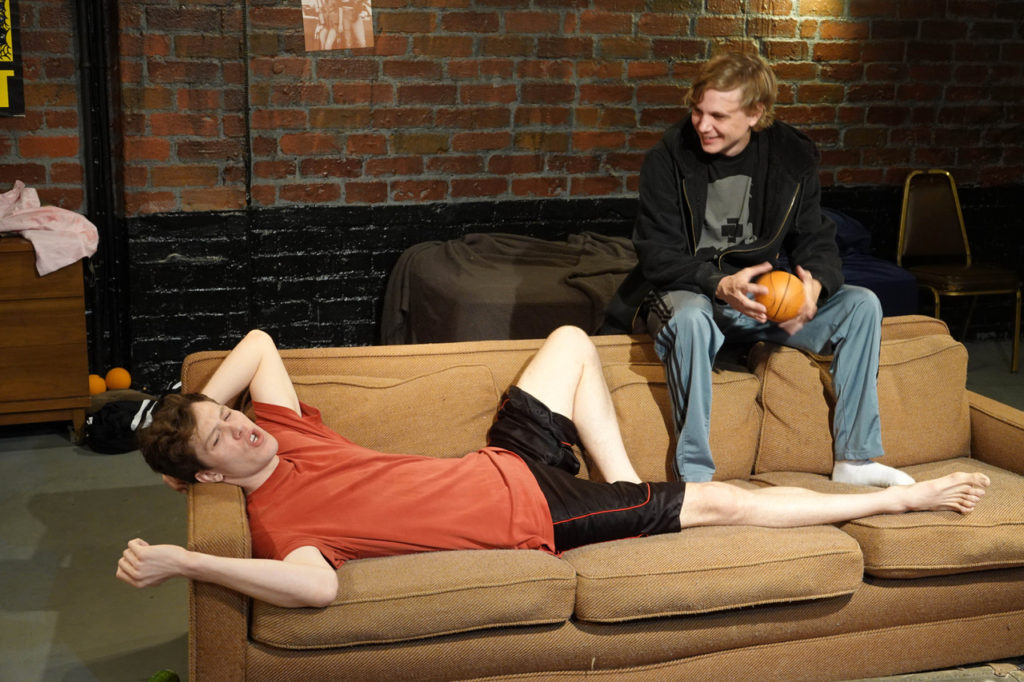
What were some of the biggest challenges you faced in working on this play?
Tim: I didn’t know if it would work, to be honest. It’s one thing to write it on the page but would it play, and would the audience hang in there through all of the really ugly and painful things these boys say and do? Would it have the impact I was aiming for in terms of shining a light on what we want so badly to ignore. Then, after the devastating killings in Buffalo and Uvalde it seemed just too much to ask of audiences
Guillermo: Honestly, the team was so strong, connected, and dedicated to a common purpose and mission for the production that the work on the play came together fairly quickly and easily. It happens like that sometimes – and the challenge for me becomes trusting that and not getting in the way. The other challenge for me was managing my own emotions and fears about the subject matter and how audiences were going to respond. Especially in the middle of our rehearsals when the awful shootings in Buffalo and Uvalde took place.
While The Beautiful People might serve as a wake-up call for those who need one, those folks are not likely to show up and see this performance? How do you reach them and get the message out? Who do you think your audiences are now, and why?
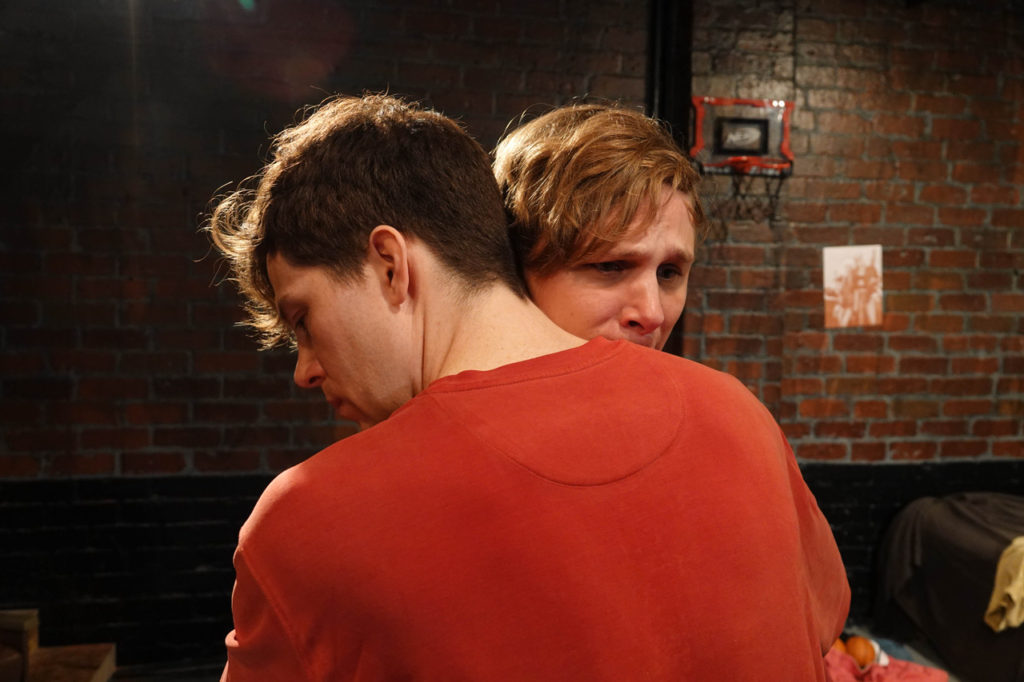
Tim: This is a really important question, and speaks to American theatre as a whole. Honestly, I don’t know. I’ll just say that my aim as a straight white cis-gendered male playwright and theatre artist, is to tell the stories that I’m qualified to tell, and with this play, and everything I do on some level, is about taking responsibility as men to do our work, internally and externally, spiritually and emotionally, to dismantle these systems of oppression, because we’re the ones who created them in the first place. One thing I’m blown away by is the response by women to this play. The language these boys use, and their actions, is intensely violent and misogynistic but very specific and intentional. The play asks us to hang in there with them as it all unfolds. Talking to women afterwards, and to my partner who is a brilliant writer and feminist who believed in this from the beginning, has been hugely gratifying.
Guillermo: I’m not sure it’s true that the folks who need to see this story aren’t likely to see it. That presupposes that this message is one that should only be important to folks of a certain political bent or folks that don’t frequent the theatre. I honestly don’t think this is the usual “preaching to the choir” type of play. The message of the play is that these horrible acts are committed by human beings – not monsters from a story or aliens dropped off from outer space. The people who do these acts are born and raised among us, part of us, in fact – are us. It’s actually counterproductive to write them off as “monsters” and “others.” It makes it all the more difficult to identify them when they begin to show the signs of telling behaviors.
Could this play continue on to other cities, or even perhaps off-Broadway?
Tim & Guillermo: We would love to see that, and we’re doing everything we can to make it happen.
Any closing thoughts?
Tim: Thank you for the opportunity to speak about the play and the group of artists who came together to bring this play to life, the response to the production has been amazing. I love Los Angeles, the theatre scene here is very, very special.
Guillermo: This season at Rogue Machine we’ve committed ourselves to having difficult conversations. That doesn’t mean being provocative for its own sake – it means presenting stories and posing questions that don’t have easy answers, and that we hope will provoke emotional and thoughtful responses. I don’t know how audiences will keep responding to this play – but I do know that the conversation needs to happen.
Running Fridays, Saturdays and Mondays at 8pm; Sundays at 3pm through July 31, 2022
Rogue Machine (at the Matrix Theatre)
7657 Melrose Ave, Los Angeles, CA 90462
Tickets: https://www.roguemachinetheatre.net
Everyone must present proof of FULL VACCINATION (includes booster) against COVID-19 along with a government-issued photo ID in order to attend. Face masks are required to be worn indoors at all times.




